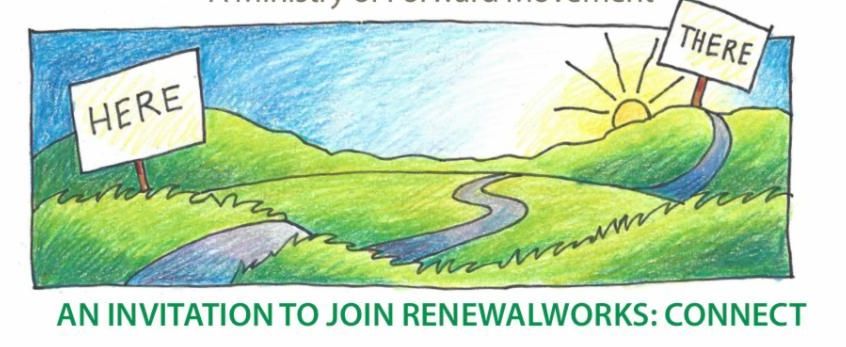
Do not be conformed to this world, but be transformed by the renewing of your minds, so that you may discern what is the will of God-what is good and acceptable and perfect.Romans 12:1,2I pray that, according to the riches of his glory, he may grant that you may be strengthened in your inner being with power through his Spirit, and that Christ may dwell in your hearts through faith, as you are being rooted and grounded in love.Ephesians 3:16, 17We must no longer be children, tossed to and fro and blown about by every wind of doctrine, by people’s trickery, by their craftiness in deceitful scheming. But speaking the truth in love, we must grow up in every way into him who is the head, into Christ, from whom the whole body, joined and knit together by every ligament with which it is equipped, as each part is working properly.Ephesians 4:14-16But grow in the grace and knowledge of our Lord and Savior Jesus Christ. To him be the glory both now and to the day of eternity. Amen.II Peter 3:18
Wise guides
As I think about what it means to put faith to work in the world (the theme of these Monday messages), I’m grateful for the wisdom of several guides in my life.
Richard Rohr, in his book, The Wisdom Pattern, makes the point that “education is not the same as transformation.” Too often mainline churches have thought that the answer to going deeper in the spiritual life is to learn more stuff. Rohr suggests that while education matters, the goal of the spiritual life is not simply consumption of educational resources but the experience of soulful transformation. How will we be changed? How has transformation been part of your spiritual experience?
Dwight Zscheile, an Episcopal priest who teaches at Luther Seminary, wrote a book called “People of the Way.” In the introduction he asks about the difference between being a church member and being a disciple. Are they the same thing? What do you think? It can be tempting to think about membership as arrival. “I’m in and close the door behind me.”A disciple is by definition a work in progress, someone on the move, open to learning, open to others, open to transformation.
A related thought from Brian McLaren, a question to which I often return: “Is the church a club for the spiritually elite who pretend to have arrived, or a school for disciples who are still on the way?” Don’t get me wrong. Clubs are great. But there is more.
Dawn Davis, a priest in the church of Canada and creator of the Revive program, speaks about the need to explore the difference between knowing about God and knowing God. She says it’s like the difference between reading a recipe and enjoying a meal.
Soren Kierkegaard framed the question in terms of worship, describing worship as a drama. He said that in the liturgy, the congregation are the actors and God is the audience. For too long, I have thought of gatherings for worship as being performances, a spectator sport. As clergy, I better be at the top of my game or the congregation (the audience) won’t clap. I love a good drama, but the spiritual life is one in which we all play a part.
These related thoughts from wise guides have been on my mind, as I think about my own spiritual journey and wonder about recent reports of decline in the church in our culture. For me, the hope is the promise of transformation. These thoughts are especially brought to mind as we navigate a season of considerable coincident crises (health, economic, environmental, racial), exacerbated by the anxiety of an impending election. I’ve seen plenty of news. I know a gracious plenty about issues and candidates. What I now need is the experience of trust that will make a difference, that will offer equanimity and hope, peace and tranquility, grace and lovingkindness in choppy waters.
That frame of mind comes not simply with knowing stuff about God, as important as that is. It comes in a relationship with God, known to us in Christ who stood up in the stern of the boat, in the midst of the storm and said “peace be still.” In my work with congregations, I’m grateful for so many wise guides with whom I’ve spoken, asking about their own spiritual experience. When I ask what has been transformative for them, what has helped them grow spiritually, the most common answer I get is crisis, challenge, difficulty, choppy waters. In those moments, we come to know our need of God. We’re in choppy waters right now. That’s precisely where God in Christ likes to go to work.
Starting tomorrow, the office of the Presiding Bishop and Forward Movement offer nine days: A season of prayer for an election. Learn more at www.forwardmovement.org/election.
-Jay Sidebotham
|
RenewalWorks For Me is a personal guide for the spiritual journey, providing coaching to help individuals grow. It begins with a brief online survey which assesses where you are in your spiritual life. We call it the Spiritual Life Inventory. We believe that it might be a wonderful practice for this unusual season in our common life.
Once your responses have been processed, we’ll email a helpful explanation of our findings, along with some tips for improving your spiritual journey. You’ll also be given a chance to sign up for an eight-week series of emails that will offer some suggestions, coaching for how you can grow spiritually, and ways you can go deeper in love of God and neighbor. Learn more at renewalworks.org
|
  |
Contact: Rev. Jay Sidebotham jsidebotham@renewalworks.org
RenewalWorks is a ministry of Forward Movement www.renewalworks.org



